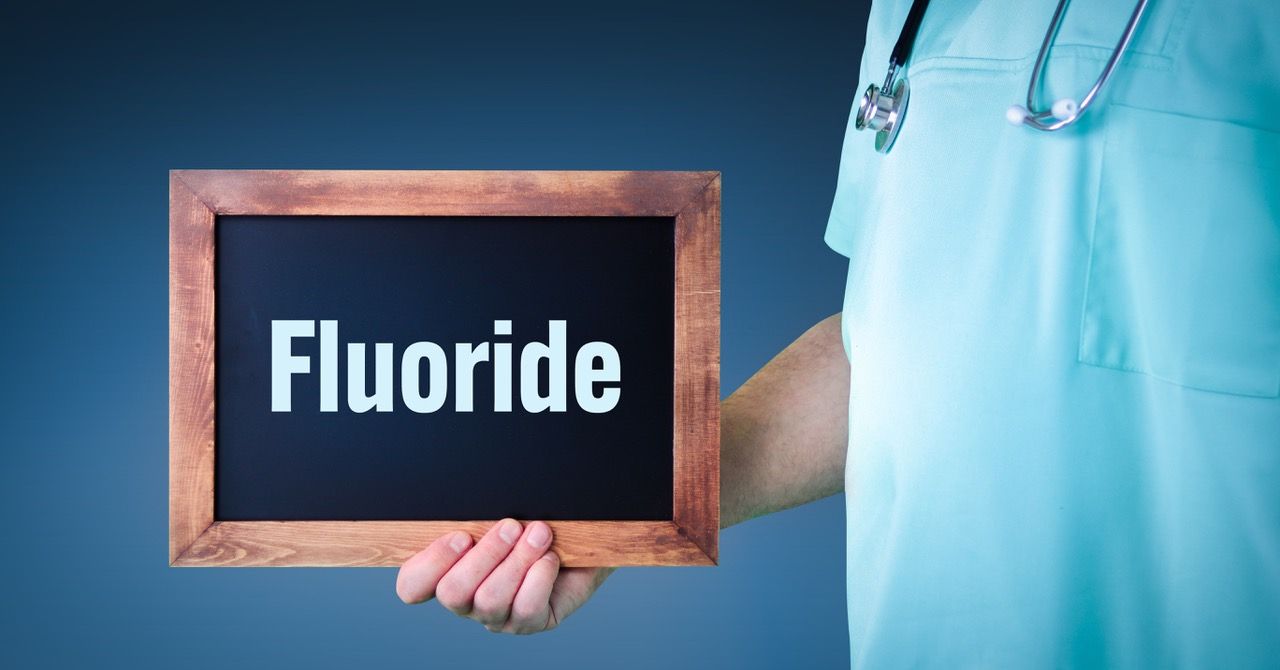Dental Practices' Best Methods to Improve Your Revenue Cycle

CBSI Revenue Cycle Webinar
(6-23-21)
This 30-minute webinar explores the best ways dental professionals can improve their revenue cycles without compromising the confidentiality, sensitivity and compassion so critical to the dental field. Discussion topics include debt recovery challenges specific to dental practitioners, credit reporting restrictions, and practical tips for effective accounts receivable,
during the
coronavirus pandemic.
Tom Barrett:
Welcome, everyone, to our webinar, "Best Practices to Improve Your Revenue Cycle While Maintaining Patient Integrity." A few housekeeping notes: we will leave time at the end of the webinar to answer questions. Please type your questions into the question box at the bottom of your screen. We will also make a recording available to everyone who attends early next week. Let me introduce to you Brian Grimes, president of CBSI, and Megan Covert, sales and marketing associate. Brian?
Brian Grimes:
Good morning and welcome, everyone. My name is Brian Grimes and I am the company president at CBSI. And with me we have our sales and marketing associate, Megan Covert. Since 1955, CBSI has provided patient-friendly collection services for multiple industries. We work with over 100 dental practices in Iowa, and I've been supporting the Iowa Dental Association for over 20 years. As a "collection agency that cares," we focus on connecting with consumers, resulting in better returns while fostering genuine customer relationships.
Due to everything that everybody on this call has been experiencing in the last 15 months, the ADA report shows 2020 revenues were down by 38%. And estimates for ADA show that they will be down 20% in 2021. Our goal today is help recover some of that revenue in-house and the best methods to work with a third-party collection agency. And later in this presentation, we will address when is the best time to write off an account -- and your overall goal should be to write off 1% or less of gross revenue.
Megan Covert:
Revenue cycle improvements. The more work that is done upfront to collect payment, the better. With increasingly more self-pay patients using your services, do as much as you can to collect upfront. Pre-Service pricing is very important. Helping your patients understand what their costs are going to be upfront will greatly increase your chances of getting paid. Friendly and consistent communication is key. Giving your patients a feeling that you are working with them and not against them, will foster better relationships and will help in getting payments.
Also, engaging early with payment options, educating your patients on different ways payments can be made, will lead to more payments. And, finally, develop an insurance discovery process. Are there any payers that should be responsible for this bill? An insurance discovery solution can convert one to five percent of your uncompensated care accounts.
Brian Grimes:
Having well-trained staff on the front lines is crucial for your upfront collections. It can be tough to ask for payment. Make sure to train your staff to address payment issues in a tactful manner. It's really no different than the way that we train our collectors on overdue accounts. You need to cater your approach to the specific personality of the patient. For example, if someone is very emotional, you need to remain calm and composed. Acknowledge what the individual is saying, show empathy. But at the same time, ask for payment. If somebody is argumentative or does not believe that they owe payment, make sure to have all your ducks in a row. Produce documents for every denial or copay and have this ready ahead of time. If the staff member is still not able to ask for payment after extensive training, you may need to find a better fit for the position. Intake forms and patient contact info are key to the success of your collection agency.
Make sure you're obtaining as much information as possible on your intake forms, including date of birth, Social Security number and middle name, or at least the middle initial -- if you don't have a Social Security number and a date of birth as is required for credit reporting -- and employment, including employer phone number and address. And sometimes you can get this off the intake forms and insurance cards that you are getting from patients. Phone numbers are also very important -- include both landline and mobile numbers.
And email addresses. Although not currently widely used in collections, there is new legislation in the works, providing a safe harbor for a collection agency to use email in 2022. In the case of a child, be sure to collect information on the spouse as well. In Iowa, both parents are responsible for medical-related bills, regardless of what the divorce decree says. And among all the normal disclosures, make sure your intake forms grant permission to contact patients via autodialer phone calls, automated messages, email and texts.
Megan Covert:
Tips for a successful collection effort. Select the best personnel. If someone is uncomfortable asking for money, maybe you should make a change. The best customer service people know how to manage the call. It is important to be empathetic. However, allowing a call to go beyond several minutes is usually counterproductive. Actively listen, and keep the conversation focused on making the payment. Offering multiple payment options gives the patient the convenience of paying in the manner most comfortable for them. Offer credit card, check, online web portal, in person or ACH.
Initially during the call, try to achieve payment in full. However, being flexible in offering payment plans that can fit within their budget is critical to satisfying the debt. Automatic payments are an excellent method to ensure the debt is paid. Offer weekly, biweekly or monthly payment plans. Offer to schedule automatic payments to match their paycheck dates, usually bi-weekly or the first and 15th of the month. Try to get a commitment to make a payment today. Being flexible is also important. Offer to skip payments or move payments if someone loses their job or seems to be in a financial crisis.
Brian Grimes:
When do you use an agency? We all know that upfront collections are best. However, there will be times when you need to send somebody to collections. Megan and I get asked every day, "Now when is the right time to send an account to collections?" And our current best practices that we recommend is, once insurance has been applied -- typically 30 days after service -- send out your first statement. If no payment is received, send a past-due text, phone call, or email. And at the 60-day, mark send out a past-due statement. It's best if your past-due statement has a different look and feel from your first statement. Once again, if payment is not received, send out a past-due text, phone call or email. And at 90 days, send a final notice, explaining the account is going to be turned over to collections if not paid within X amount of days.
I recommend 10, as it creates a sense of urgency to the letter. And if no payment is received, collection agencies should come into play at 120 days past due. Now a lot of agencies push to send your account at the 30- or 60-day mark, but I just think this is too soon. Patient relationships are a concern. And obviously so are the commissions. However, if somebody is not willing to pay after three statements and 120 days, the stats show that you'll end up with more in your pocket by sending the account to collections than to just continue to send statements. Of course, there will be situations where you're waiting on insurance. However, if you're going past six months, it's really going to cost you, as bad debt is very time sensitive. Once an account goes to CBSI, we then verify addresses with the USPS. We scrub for bankruptcies and deceased accounts.
We then score each account based off its collectability. And then accounts are grouped with any other existing accounts in our database. And this currently happens approximately 90% of the time. And then we send out a validation notice. The law requires that patients be given 30 days to dispute a debt. Each letter has a linked or online payment negotiator to set up payment plans. And then the collection calls start. Credit reporting begins at roughly day 60, and legal action can be taken after all our regular collection efforts are exhausted. We only pursue legal when we believe that patient has the ability to pay, but is choosing not to. Potentially, the legal process could start sooner than this timeline, if we already have a relationship with that individual and already started the legal process.
You see in this chart, that collectability drops considerably over time. The longer you wait, the less chance that you have collecting the debt. After six months, the return rate drops dramatically. And after two years, you'll have very little chance of collecting any money.
Megan Covert:
Another way to look at this is, the longer your debt is owed, your dollar shrinks. Your dollar is worth considerably less, the longer the money is owed. This is why it's so important to have a consistent process in place to ask for the money. Using a professional collection agency is a key component in this process. The sooner you start the collection process, the more likely you'll collect.
Brian Grimes:
Different types of collection agencies. There are several national agencies. They typically market to a lot of dental practices where you pay for a prepaid letter service, charging by the letter. And you typically buy 100 accounts or more for maybe $1,200 or $1,400, to send out a series of three letters. And if it's not collected with the three letters, the accounts are then put into a contingency collection rate at a really high rate -- typically 50%. They do push to send accounts very early in the process, and maybe, when all it would take is to send out another statement to get paid. These agencies typically do not credit report at all. They almost never pursue legal.
The collection agency in these scenarios gets paid regardless of the results. And it typically results in very low return rates. I do have a real-world example of a dental practice that we currently work with that was utilizing one of these services. The letter service, when adding up the cost of the upfront cost of every letter -- and keeping in mind, you can't collect everything -- and the high 50% contingency rate, effectively the dental practice is being charged a 34% commission, right? They had an overall return rate of only 16%.
We actually worked those accounts on what we call a "second placement," as they had already been with that agency. And our current return rate on those accounts is at a 46%. And on their first-placement return, it has tripled with CBSI and we're charging essentially the same commission rate. Letter services may be worth it, if your average balance was like, say over $1,000. But typically dental clients' average balance is maybe $150 to $200. At CBSI we work on a contingency basis, where we only get paid on what we collect.
Megan Covert:
So here's what to look for when choosing a collection agency. An agency that works your local market will generally return more than a national agency. A local agency will usually have more patient or patient contact information, because they are working at the local market extensively. You will want to ask the agency about their license. Many states require licensing, and this is important because it protects the patient and you, the client or provider.
Also check, can the agency pursue legal? Not all agencies offer legal services, which can include pursuing a judgment. At CBSI we pursue legal via right of assignment in CBSI's name, not yours. So we only pursue legal in situations when the patient has the ability to pay, but is just choosing not to. And we do have the ability to accurately determine if the patient has the ability to pay. Membership in the Association of Credit and Collection Professionals, ACA International, indicates that the agency adheres to industry standards for ethical and professional conduct.
Also check the agency's Better Business Bureau rating and Google reviews, although sometimes individuals will complain to get out of paying a legitimate debt. Make sure your agency is responding to any complaints and does not have an unusually low rating. Also, having access to a secure online website can save you time and give you information about your accounts 24/7.
Brian Grimes:
A little bit about CBSI is, we are a consumer-friendly debt collection agency and we've been in business for over 60 years. Now, a lot of agencies are moving much more towards a consumer-friendly approach, but sometimes it's hard to teach an old dog new tricks on the collector side of things. Luckily, we've always had this mentality, and we just do not get complaints about our team. Our collectors are flexible and take pride in helping a patient get out of debt. We also have a very large Iowa database. CBSI has over 1,300 clients and almost two million accounts in our database. If you don't have a good address or phone number for a patient, we probably do. On average, 90% of the time you send us an account, we already have that name in our database, because they owe one of our other clients money, as well.
The net result is more accurate data, established relationships, and a higher recovery rate. We work in multiple industries. We may get a new account with more current information, even down the road. Skip tracing. We can find patients that have moved without leaving any type of forwarding address with our database, as well as a lot of other pay for one. We do credit report. CBSI is a credit bureau. And after a grace period of approximately 60 days, we'll leverage credit reporting to collect on your debt. And with your permission via right of assignment, we can pursue legal in CBSI's name to garnish wages and collect the debt. We find this an effective way to recover on accounts that can pay, but choose not to.
In industry experience, we currently work with over 100 dental practices. And we find that patients that don't intend to pay when they come in, kind of bounce around from one dental practice to another, which once again allows us to combine efforts -- to combine all accounts potentially into one small claims lawsuit. We are complaint-free and we treat all patients with the utmost respect and do not harass with multiple calls per day. We have an A+ rating with the BBB and we work strictly on a contingency basis and only get paid on accounts that we collect.
Brian Grimes:
And with that, I'd love to open it up to any questions that might be out there.
Tom Barrett:
Thank you, Brian. We do have a question here that says, "Why should I pay you to collect my money?"
Brian Grimes:
Sure, Tom, I can grab that. You know, I look at it differently than that. We do take a percentage, yes, on what we collect. But the end result is we're going to collect way more than you would have. And especially on those accounts that you've given up all your efforts on. So in the end, I look at it as though it's going to cost you money by not sending somebody to collection versus to continue to send statements out.
Tom Barrett:
Brian or Megan, we have another question here. How can you collect overdue bills when I can't?
Megan Covert:
Yeah, I can answer that one. So that credit reporting really helps that piece out. I mean, you know, this stays on their credit report from seven years of date of service, and if they go to get a loan, you know: House, car or anything like that, that's going to show up. And they're going to have to get that paid to get that loan. So, and also like we mentioned the legal as well. If it comes to that point, we can definitely pursue legal and get that garnishment as well.
Tom Barrett:
How much will your services cost me typically?
Brian Grimes:
Tom, what we do is we look at somebody's average balance and their volume. Average balance is really our biggest concern. Our goal is to come up with a rate that should lead to the highest rate of return on your accounts. So it can vary depending on what kind of volume and that average balance. But the ultimate goal is to get the highest rate of return in dollars back in someone's pocket.
Tom Barrett:
Brian and Megan, I have another question that came in. How will my patients be treated?
Megan Covert:
Yeah, I can answer that. So at CBSI, I mean we really believe that being "Iowa nice" is the right way to treat people. So we're very understanding, you know. We really like to work with that person. If they can't pay in full right away we understand and we offer payment plans and things like that. We also have an online web portal that they can go to and do a little payment negotiator on that as well. But we really believe that being nice to people, you know, is the best way to get a payment, and being rude and nasty doesn't help things. So, and not everybody expects to go into debt, so we really try to help people out.
Tom Barrett:
Here's another question. How will I know the status of my accounts?
Brian Grimes:
Sure, Tom. I can grab that. We have a web portal that our clients can log in 24/7, see the status, run reports, and upload accounts, even send messages back and forth. It's all HIPAA compliant and secure. It's actually double the encryption requirements for HIPAA and has the highest rating in our industry for security.
Tom Barrett:
Thank you. What if my mail is being returned and we don't have another address?
Brian Grimes:
We can utilize skip tracing, Tom. And a lot of times we have that already in our database, but we do have multiple different databases that we're able to locate folks. All the way down to potentially even looking online, trying to find individuals through social media and whatnot. A good skip tracer is really like a detective. And our collectors are very good at it, and they are rewarded when they're able to find somebody.
Tom Barrett:
Well, Brian and Megan, that looks like all the questions we have right now. Thank you so much. Is there anything you'd like to add?
Brian Grimes:
No, Tom. Thank you. I appreciate everybody on the call, and thank you guys very much for your time.
Recent Posts











Share On: